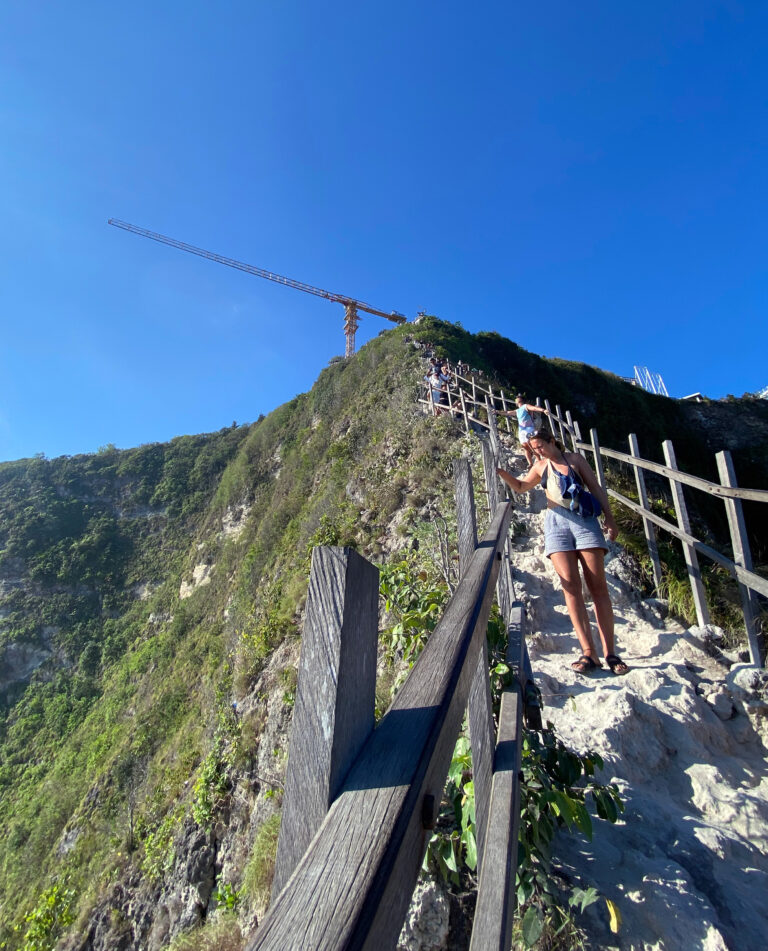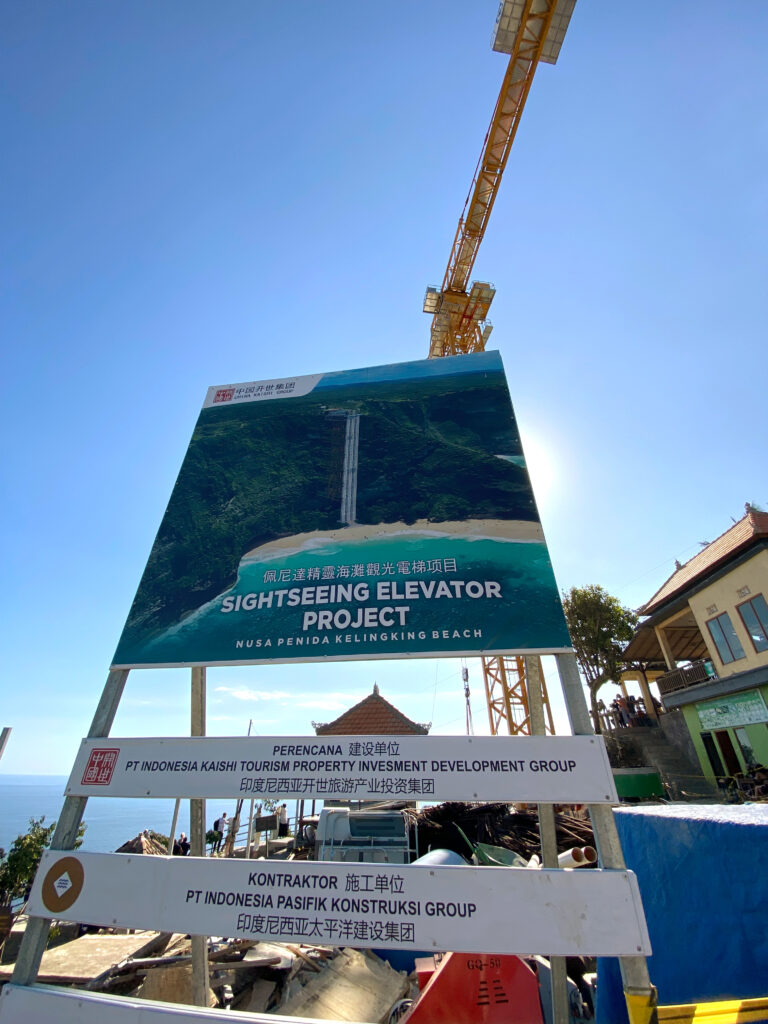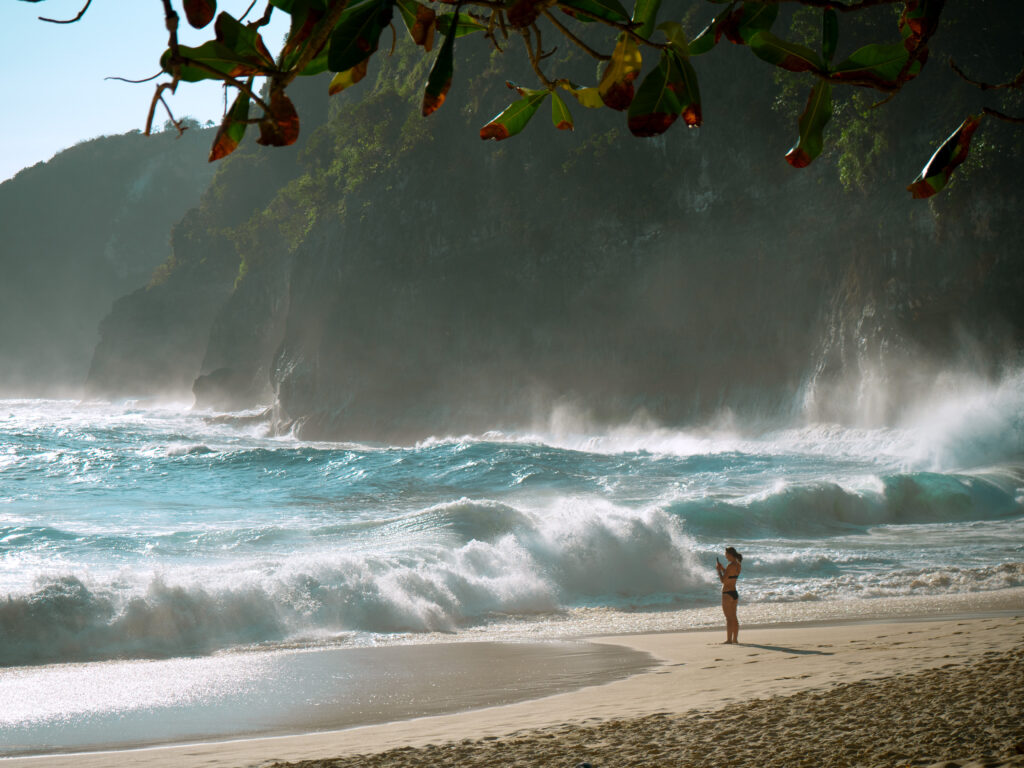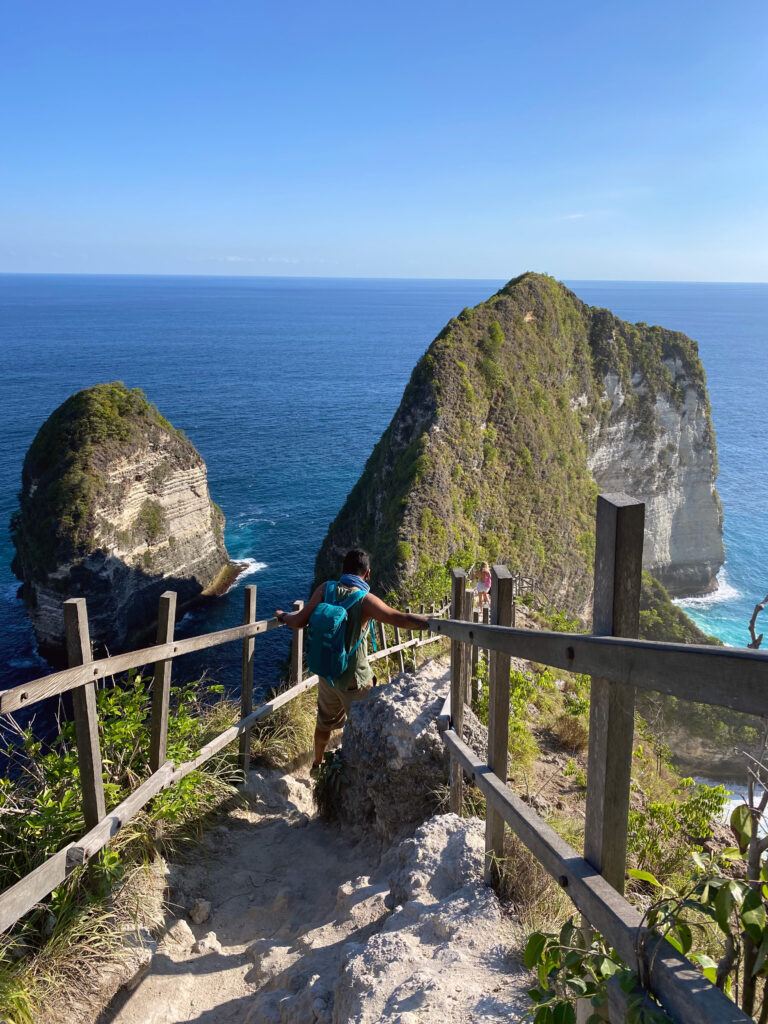The cost of over-tourism in BaliBali’s stunning beaches and rich culture, has made it one of the most sought-after destinations in the world. But at what cost?
Convenience or Catastrophe?


The Downsides: Over-Tourism and Environmental Impact
One of the main arguments against the elevator’s construction is that it will ruin Kelingking’s natural charm and raw beauty.
Kelingking beach is currently only accessibly by a steep, precarious path. This accessibility barrier, has protected it from commercial activity. Visitors who do make it to the beach, will find only one small table selling water and snacks — an exception appreciated by many adventurers. The addition of an elevator is likely to introduce a wave of commercialization that could change the character of this beach forever. This pristine beach may soon be overrun with resorts, shops, and excessive litter.

Across the sea, a limestone cliff crumbled in early 2024 during the construction of a hotel complex in Uluwatu. But that was only the beginning. The fragile nature of these cliffs has prompted another controversial project: a 25m high concrete seawall and a service access road. Developers claim this will stabilise the cliffs and protect the sacred Uluwatu temple perched on top. The most alarming aspect? The seawall construction began without proper public consultation or environmental assessments, sparking outrage among the local community and tourists alike.
The Uluwatu community (including locals residents and tourists) are concerned about the project’s impacts on the sacred and ecologically sensitive area. Videos have surfaced showing heavy machinery dumping tonnes of limestone rocks and debris into the ocean . This threatens the fragile reef ecosystems and the wildlife that depend on them, from dugongs and reef fish to sea turtles. Damage to the reef could also damage Uluwatu’s world-class surf, a key draw for thousands of tourists every year.
Click here to see a video of the Uluwatu seawall construction project.
This story of Uluwatu’s damaged limestone cliffs is a poignant warning. Could Nusa Penida face a similar fate if unsustainable development continues unchecked and profit is prioritised over long-term environmental stewardship?
Locals’ Perspective: The Economic Benefits of Tourism
While many communities (local and foreign) lament the threat of development projects in Bali, other local’s have a different opinion.
On Nusa Penida, the Kelingking beach locals support the elevator project. In the past two decades, Nusa Penida has transformed from an agriculture-dependent community to a booming tourism hub. Tourism has allowed locals to secure more stable, well-paying jobs and create a better future for their children. On a larger scale, tourism contributes to 61% of Bali’s GDP, so the importance of tourism and the economic benefits it brings is undeniable.
It’s important to note here that unlike the Uluwatu sea wall project, the Nusa Penida elevator project required more significant local input. The project is a partnership between the Karang Dawa Traditional Banjar of Bunga Mekar Village and the Chinese investment firm PT Bina Nusa Properti. Furthermore, 50% of the construction labor is being performed by local workers.
Although these steps towards local collaboration are commendable, more could be done to ensure that Bali’s natural landscapes remain intact for future generations. One local I spoke to shared concerned about the impact of over-development on Nusa Penida. He worried that projects like the elevator, could make Nusa Penida less attractive to the tourists who venture there for the untouched, raw beauty. This would, in turn, threaten the economic stability of those who rely on tourism for their livelihood.
How You Can Help Combat Over-Tourism
Bali’s future as a top travel destination hinges on sustainable development and ethical tourism practices. By being conscientious guests and making thoughtful choices, we can all have a positive impact wherever we travel:
- Visit Less Popular Destinations: Instead of flocking to famous beaches, explore lesser-known spots. Alternatively, travel during the off-season to reduce pressure on popular sites.
- Support Local Businesses: Stay in local guesthouses rather than large resorts. Guesthouses have a smaller environmental footprint plus your money goes directly into the pockets of families and local businesses.
- Choose Sustainable Tour Operators: Look for eco-friendly tour companies that prioritize conservation and responsible tourism practices.
- Travel in Small Groups: Avoid large tour buses and cruise groups. Smaller groups have a smaller environmental impact and provide a more intimate travel experience.
At the end of the day, it’s not up to me, a foreigner, to decide for or against a beach elevator, or any kind of development project, in Bali. Like thousands of visitors before me, I am in love with Bali and want to see it’s beautiful shores preserved and protected.



